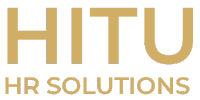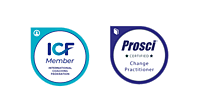The power of words is highlighted in recent events in the political arena, presenting an opportunity to remember to choose and use our words carefully. In the business context, organisations can harness the power of words to create a certain culture. Every successful business I have worked with (as an employee or as a consultant) had their own unique language that is, organisational lingo. The organisational lingo in some cases is so ingrained in the cultural fabric that it is hard for people inside the organisations to recognize it. This makes determining or even registering the impact of it a tough call. That is why hiring consultants from time to time is crucial for organisations- not only does it present an outsider’s point of view it also creates a space for reflection especially for the HR within.
Organisations are entities that represent the collective identify of people associated with it. It is no wonder then that language is important. However, as the management scene gets ever more bombarded with new (rather in most cases re-packaged) techniques and talk of the advent of "AI" (and such) I find that simpler things are lost. The simplicity of using words effectively in organisations and as HR practitioners being aware of the "lingo" of our organisations can be a powerful tool.
Organisational lingo is a by-product of the organisational culture or sometimes vice versa. Words commonly used by employees or inside jokes can provide a window into the hidden organisation culture. Question then is- How often does HR take time to listen to what the “organisational lingo” is saying? and what techniques/ tool can HR use to tap into uncovering the organisational lingo?
Some tools and techniques are already in place in most organisations but (maybe) what is sometimes needed is a fresh set of eyes to notice what words are being repeatedly used by employees and; what words are becoming too common to get noticed. Again an outside consultant can be useful in this scenario. Most organisations hold the old fashioned town-hall type meetings that are valuable but organizing smaller focus groups to understand the thoughts of employee on various aspects on regular basis can help tune into the organisational lingo.
Further, HR can use "dialogue or debate days" to explore the untamed power of organisational lingo. A day (or two) can be dedicated to not only tap into the organisational lingo but also to create awareness of issues such as diversity as well as, help in finding solutions to organisational problems. Listening to the words used by employees to describe themselves, the organisational culture, and the state of relationship between the employee and the organisation can help discover the organisational lingo that might have eluded the HR in organisational wide initiatives.
Organisational lingo can be a useful tool to unveil the concealed organisational culture. Organisational culture is not what is written on the posters of most organisations; the real culture can only be understood by closely listening to the words of employees. Sometimes the most powerful tools that organisations need are the simplest such as attention and reflection. Attention- to simple, small and obvious aspects such as words used every day at work places, and reflection before and after devoted to examining what they might be pointing to.

